When it comes to conspiracy theories, the assumption that large businesses will go out of their way to pull off a massive hoax isn’t limited to the fringes. People tend to believe in one or more conspiracy theories, even in politics. 28% of Americans, for example, believe a secret elite power is trying to control the world. That is more than 84 million people. More than two million pounds of tinfoil would be required to produce enough hats to prevent the Illuminati from reading their minds.
While it’s amusing to make fun of people’s weird beliefs, the widespread belief in unusual conspiracies reflects our mistrust of the world’s largest corporations or authority in general. The following 25 items will perfectly highlight the most pervasive conspiracy theories about big business that demonstrate that mistrust – perfectly.
Here’s 25 Corporate Conspiracy Theories You Need To Know

Google's Incognito Is Not Very Incognito
 https://www.theverge.com/2023/8/7/23823878/google-privacy-tracking-incognito-mode-lawsuit-summary-judgment-denied
https://www.theverge.com/2023/8/7/23823878/google-privacy-tracking-incognito-mode-lawsuit-summary-judgment-denied Before we kick off today, we must apologize for all the Google conspiracy theories – we just couldn’t let the opportunity pass us by to tell you about them. Most of us believe that if you want to surf the web discreetly on Google’s Chrome browser, you should use Incognito mode. However, many users may need to be made aware that their behavior is still visible to third parties, including the websites they visit. The confusion over privacy led to a $5 billion lawsuit against Google for not revealing its data-collecting practices to users when using Incognito mode.
The usual belief is that when a user browses in Incognito mode, there is complete privacy, which means no browsing history, cookies, or personal information is saved. However, even though cookies aren’t stored on Incognito browsers, marketers can still identify information about you by using data such as IP addresses and your browser type in a process known as “fingerprinting” – making this conspiracy theory 100% true.
Snapple And The KKK
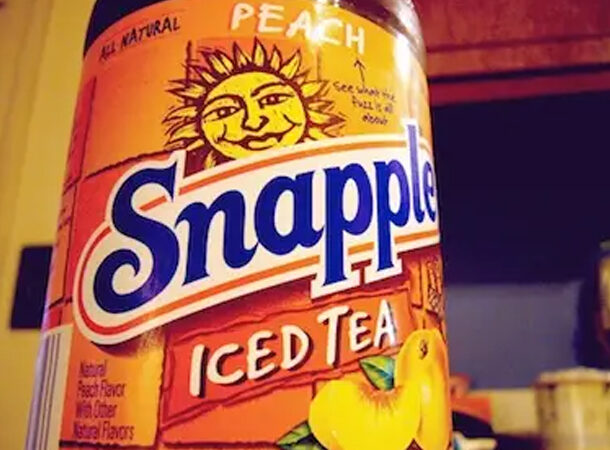 https://www.motherjones.com/politics/1994/03/snapple-beverage-corp/
https://www.motherjones.com/politics/1994/03/snapple-beverage-corp/ There is something we can learn from genuinely awful ideas that catch on. We’re just not sure what it is yet. Snapple spent years fighting claims that it funded the KKK. As one of Snapple’s founders said, “How could three Jewish boys from Brooklyn support the KKK?”
The conspiracy theory, however, continued to spread because it had some “evidence” on its side. People would say, “Look at the label – there’s an old wooden slave ship on the front.” And there’s a strange K with a circle around it on the back – the Klan’s symbol.” And sure enough, if you looked, you’d see a ship and a circled K. The reality, however, is less frightening: the ancient wooden ship was a recreation of the Boston Tea Party—get it, Snapple Tea, Boston Tea Party? And what about the K with a circle around it? It does not mean “Klan.” It simply stands for “Kosher.”
You Can Stop Meta From Owning Your Photos
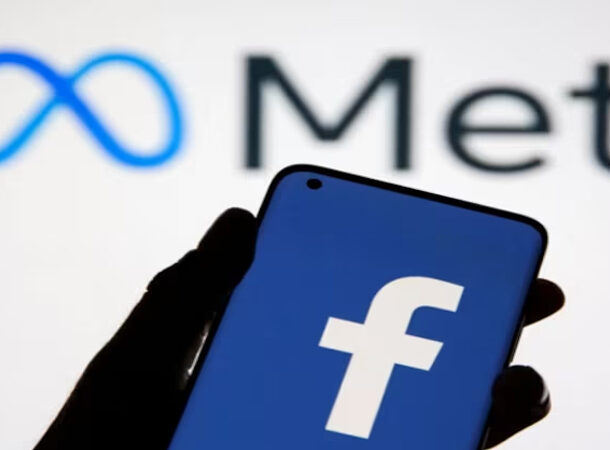 https://www.10news.com/news/fact-or-fiction/fact-or-fiction-new-rule-allows-facebook-to-use-photos-without-permission
https://www.10news.com/news/fact-or-fiction/fact-or-fiction-new-rule-allows-facebook-to-use-photos-without-permission Numerous conspiracy theories surround Meta, the conglomerate behind both Instagram and Facebook. For example, many people believe that Facebook monitors your discussions and then sends you personalized adverts. However, another conspiracy theory revolves around Meta’s use of your private photographs. According to the theory, Meta owns any photo you upload and is free to do anything they want with it unless you declare differently in a post.
Unfortunately, that is not how it works. When you sign up, you agree to allow Meta access to your photos. It’s stated explicitly in the terms of service. That’s significantly more legally binding than any random chain message you share on your feed.
The Money-Laundering Bed Shops
 https://www.businessinsider.com/mattress-firm-conspiracy-grows-after-accounting-problems-2018-1
https://www.businessinsider.com/mattress-firm-conspiracy-grows-after-accounting-problems-2018-1 In 2018, a Reddit user pointed out that specific cities in the United States, particularly Chicago, had a lot of Mattress Firm stores. The Reddit topic immediately went viral, with thousands of people submitting photographs and maps showing Mattress Firm locations within 5 miles of each other – sometimes even directly across the street.
This provoked speculation that the retail enterprise is actually a money-laundering operation. According to one Reddit user, “Mattress Firm is some sort of giant money laundering scheme. I once saw four mattress stores on each corner of an intersection, and there is no way there is such a demand for mattresses.” The conspiracy theory was debunked by WBUR and Business Insider in 2018.
Shein Workers Are Asking For Help
 https://www.snopes.com/fact-check/cries-for-help-shein-fast-clothing/
https://www.snopes.com/fact-check/cries-for-help-shein-fast-clothing/ Shein has long been a hot topic of discussion on TikTok, with many condemning the brand for producing cheaply produced clothing at an exhaustive pace. The discussion has heated up in the last year or so thanks to a TikTok conspiracy theory claiming that its employees are sneaking messages begging for help into its products. According to these videos, which have received millions of views, Shein workers secretly put “need your help” or “help me” messages on product tags.
However, Snopes, the famous fact-checking site, revealed that there is no evidence that any of the tags included in these photographs are real, and the ones from viral news articles came from other companies – not Shein. For example, the “Help Me” on the receipt was for a product sold by the Chinese brand Romwe, a “Help Me” bookmark. In other words, it wasn’t a secret message; it was the name of the product itself.
Google Manipulates Its Ad Auctions
 https://www.justice.gov/opa/pr/justice-department-sues-monopolist-google-violating-antitrust-laws
https://www.justice.gov/opa/pr/justice-department-sues-monopolist-google-violating-antitrust-laws Google’s principal source of revenue stems from advertising, an effort that yielded a remarkable $147 billion in the year 2020, constituting a formidable 80% of their annual earnings. This reality has given birth to a conspiracy theory that has garnered significant traction in recent years.
Millions of businesses harness the capabilities of Google AdWords to channel visitors toward their websites. Business owners and social media gurus participate in auctions managed and overseen by Google to optimize their endeavours. However, Google’s lack of transparency in the bidding process has become a massive source of controversy. Hundreds of thousands of AdWords users claim that Google unjustly influences the pricing in these auctions, and the allegations have persisted despite Google’s endless denials. In 2020, the Justice Department finally instigated legal proceedings against Google for monopolizing search and search advertising. The trial will begin in September 2023.
McNuggets Are Made From Slime
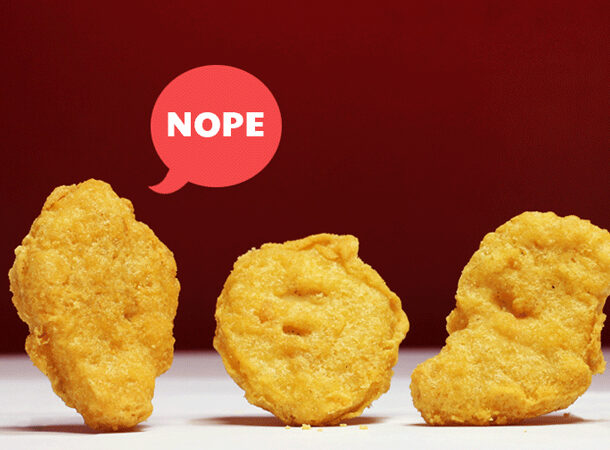 https://www.nbcnews.com/business/consumer/mcdonalds-shows-how-its-mcnuggets-are-made-no-pink-slime-n23706
https://www.nbcnews.com/business/consumer/mcdonalds-shows-how-its-mcnuggets-are-made-no-pink-slime-n23706 We’re sure you must have seen the fake videos of how a McNugget looks before it ends up in your car. McDonald’s came under considerable McFire after a rumor spread that their traditional chicken nuggets were created from a gooey pink slime. The conspiracy included “photographic evidence” and was not precisely appealing. As one can expect, the general public was both shocked and appalled. McDonald’s received so much criticism that they were forced to create a response video demonstrating how a McNugget is actually made.
And, no, there is no pink slime involved. The rumors have yet to be completely buried, and an official page on the McDonald’s website still refutes the allegation. However, the McNugget is a lot tastier today than it was in 2014; the jalapeno (ha·luh·pee·nyow) dip is a winner!
Tech Companies Make Use Of Planned Obsolescence
 https://www.sciencedirect.com/topics/computer-science/planned-obsolescence
https://www.sciencedirect.com/topics/computer-science/planned-obsolescence Planned obsolescence is a familiar commercial concept. Whether they make light bulbs or pantyhose, the world’s manufacturers regularly develop strategies that encourage consumers to buy new products when current versions expire.
Just look at smartphones, for example. We frequently discard them after only a few years of use. Screens and buttons break, batteries expire, and operating systems, apps, and other software always reach a point where they can no longer be upgraded. And what about printer ink cartridges? Microchips, light sensors, or batteries can disable a cartridge long before all of its ink is used. Some people simply buy new printers and refuse to get caught up in cartridge drama. Maybe we’re just suckers, but the theory around planned obsolescence is definitely 100% true, that’s for sure.
Tobacco Companies Knew Smoking Was Bad For Our Health
 https://www.tobaccoinaustralia.org.au/chapter-10-tobacco-industry/10-12-the-tobacco-industry-s-revised-stance-on-hea
https://www.tobaccoinaustralia.org.au/chapter-10-tobacco-industry/10-12-the-tobacco-industry-s-revised-stance-on-hea The word “Operation” conjures images of a forceful, well-planned, and beautifully conducted exercise. And that is precisely what Operation Berkshire was. It was the tobacco industry’s measures to keep people smoking. The CEOs from seven large corporations were brought together by Tony Garrett, chairman of Imperial Tobacco, in 1976.
According to a document published by the Brown & Williamson Tobacco Corporation, Operation Berkshire “monitored anti-tobacco organizations” and [denied/disputed] data and allegations from anti-smoking forces. Essentially, they formed a single front to combat the growing public attention on smoking cigarettes. They even lied to Congress, claiming that nicotine was not addictive. Operation Berkshire was not made public until 1998, meaning that it was carried out in secrecy for more than two decades.
New Coke Was Bad To Increase Demand For Original Coke
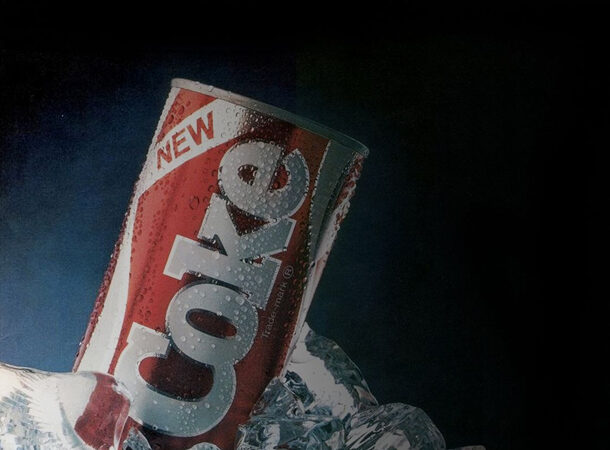 https://www.snopes.com/fact-check/new-coke-fiasco/
https://www.snopes.com/fact-check/new-coke-fiasco/ There are business disasters, and then there’s New Coke. New Coke, which debuted in April 1985, was a reformulated version of the original beverage. Coca-Cola’s sales were declining, and New Coke was the company’s attempt to revitalize the brand. To put it mildly – it didn’t work out. At all. The product was greatly reviled, and the experiment was deemed a colossal failure. Classic Coke was reintroduced three months later to enormous success.
However, this raised a few eyebrows. Skeptics suspected that Coke had pulled a fast one and purposefully made New Coke taste terrible, in the process increasing demand – and sales – for the original Coke. It’s an intriguing conspiracy theory, but it’s unfounded in reality. As company president Donald Keough joked, “we’re not that smart.”
The Starbucks Logo Is Hiding The Devil
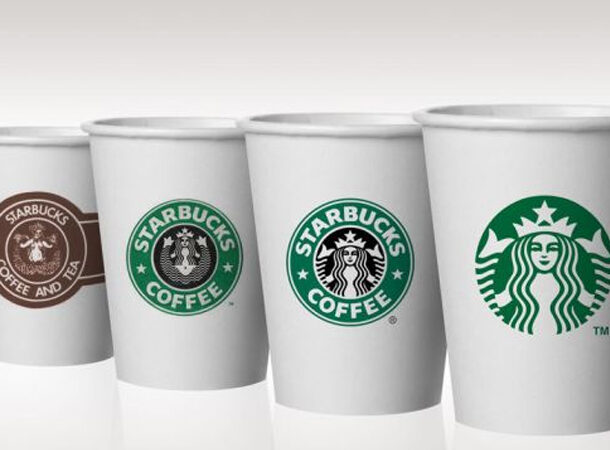 https://doctordavidfriedman.com/blog/the-hidden-evil-and-perversion-behind-starbucks-logo
https://doctordavidfriedman.com/blog/the-hidden-evil-and-perversion-behind-starbucks-logo The devil is in the details. Or, for this particular instance, it’s in the logo. You see, “Starbucks'” early mascot was a scantily clad siren with two mer tails. One that, when turned upside down, appeared to resemble e the devil. Whether it’s far-fetched or not, the “Starbucks” logo has been altered multiple times since, each time with far less fanfare regarding its allegedly religious significance.
Ironically, they would not be the last business in town to be accused of devil worship. Someone on Twitter recently discovered that a few “Outback Steakhouse” locations were organized like a pentagram. However, according to the company’s official Twitter account, it looks like their classic Bloomin’ Onion dish.
Manipulation and Price Fixing - of Chicken
 https://www.seattletimes.com/seattle-news/washington-state-ag-bob-ferguson-suing-chicken-producers-over-alleged-long-running-price-conspiracy/
https://www.seattletimes.com/seattle-news/washington-state-ag-bob-ferguson-suing-chicken-producers-over-alleged-long-running-price-conspiracy/ Americans love their chicken. In fact, 75% of Americans eat chicken at least once a week. And why shouldn’t they? It’s tasty, relatively cheap, extremely nutritious, and protein-rich. Ask any parent; it’s the perfect go-to dish if you have growing kids in the house – as long as there’s no pink slime involved in the preparation – anything goes.
However, if this list teaches us anything, nothing is sacred, and according to one conspiracy theory, Americans have been overpaying for their favorite white meat. In 2021, Washington Attorney General Bob Ferguson accused nineteen independent chicken producers of illegally inflating the price of the meat. And – he had the facts to back his claims.
According to Ferguson, the 19 companies intentionally influenced chicken supply to raise demand and, consequently, the market price of chickens. The champion of law and order filed a lawsuit against the companies, and as of April 2023, fifteen out of the nineteen had reached settlements, paying millions in fines.
Big Pharma is More Concerned with Profits Than Patients
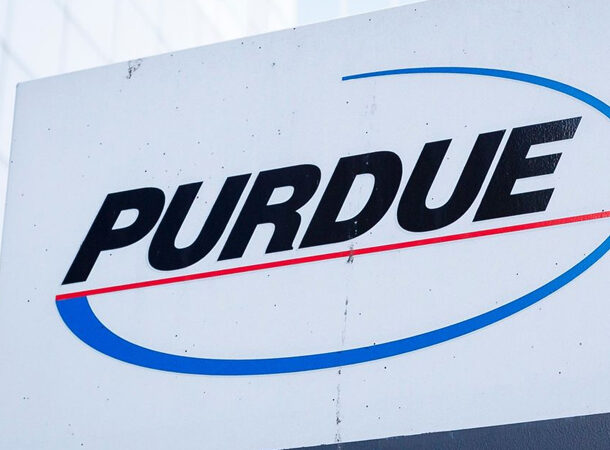 https://www.nytimes.com/2020/10/21/health/purdue-opioids-criminal-charges.html
https://www.nytimes.com/2020/10/21/health/purdue-opioids-criminal-charges.html Unfortunately, the following conspiracy theory proved to be 100% correct. Purdue Pharma, a private pharmaceutical corporation, has a shady past. It once paid a massive fine for lying about OxyContin’s addictive properties, and in 2020, it was found guilty of several charges relating to the opioid epidemic. In essence, Purdue was paying kickbacks to distributors for them to sell more of its medicine and then lying to the Drug Enforcement Administration about it. Even worse, they sold their product knowing it was going to “abusers,” feeding the ongoing opioid epidemic to get rich.
As US Attorney Christina Nolan says, “Purdue put opioid profits ahead of people.” It cost Purdue billions of dollars, and the controversy forced the company to rebrand.
Search Algorithms Are Pushing People Toward Extremism
 https://www.newsweek.com/amazon-nazi-books-jeff-bezos-propoganda-1488467
https://www.newsweek.com/amazon-nazi-books-jeff-bezos-propoganda-1488467 Amazon, Facebook, Google, and YouTube are all among the tech giants under investigation for search algorithms that may amplify and suggest extremist content. Although each platform has its own method of monitoring user preferences, their search recommendations push users to discover new content linked to their query, regardless of whether it promotes propaganda or misleading information.
But it doesn’t end there. The Wall Street Journal stated in an investigation that YouTube’s recommendations frequently lead viewers to channels that promote conspiracy theories, biased opinions, and deceptive films, even when those users have demonstrated no interest in such content. Amazon has also been chastised for recommending anti-Semitic children’s books and Nazi propaganda. At the same time, internal Facebook papers demonstrate that the firm has known since 2016 that 64% of all extremist organization joins are attributable to its recommendation tools.
McDonald’s & the IRA
 https://web.archive.org/web/20100129181855/https://www.nytimes.com/1989/11/30/opinion/topics-of-the-times-the-ira-you-say.html
https://web.archive.org/web/20100129181855/https://www.nytimes.com/1989/11/30/opinion/topics-of-the-times-the-ira-you-say.html The following conspiracy theory had massive ramifications and could have severely harmed McDonald’s reputation. Thankfully, none of it is true, so you can eat your Big Macs guilt-free. The theory dates back to the 1980s when McDonald’s was accused of funding the Provisional Irish Republican Army. The IRA, or the Irish Republican Army, was a terrorist group that fought for Northern Irish independence.
In an unexpected twist, the theory was traced back to CNN, which covered the company’s use of IRAs, or Individual Retirement Accounts. Someone had mixed up terrorism with pension planning, and as a result, an unanticipated conspiracy theory was born.
Big Tech Interferes with Elections
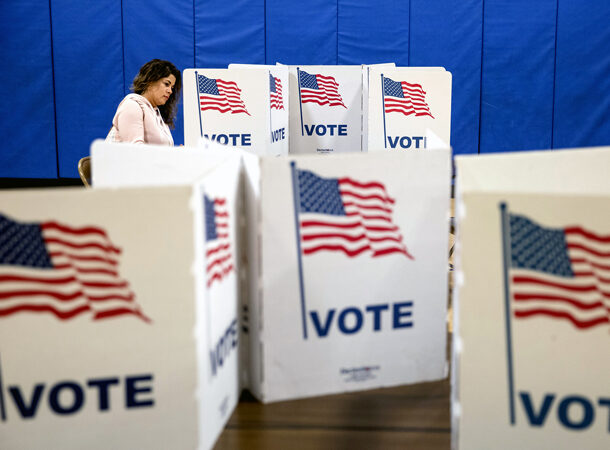 https://www.fastcompany.com/90710235/political-campaign-ads-facebook-google
https://www.fastcompany.com/90710235/political-campaign-ads-facebook-google When it comes to politics, big tech often seems unprepared for the heat that comes their way. For instance, in 2019, Facebook was fined the incredible sum of $5 billion by the Federal Trade Commission for data misappropriation in the now famous Cambridge Analytica incident. The controversy highlighted tech companies’ potential influence on voters using their platforms.
As paid ads make up the larger part of Facebook’s income, it’s important to know that political ads are permitted on the platform (the same goes for Google) – but it is, however, subject to a few restrictions. Advertisers targeting users on either site must undergo a rigorous vetting process and can only run their ads at certain times. Ads are also restricted during specific election campaign periods.
Does that make this conspiracy theory true? We’ll leave that to you to decide.
The KKK owns Church's Fried Chicken
 https://www.mysanantonio.com/food/slideshow/The-rich-history-behind-San-Antonio-born-229784.php
https://www.mysanantonio.com/food/slideshow/The-rich-history-behind-San-Antonio-born-229784.php “Church’s” and their signature chicken have been the subject of several outlandish conspiracy theories since the 1980s. The most outlandish? That they are, in fact, operated and owned by the KKK, who utilize them to further their own supremacist agenda. They allegedly lace the chicken with a substance that renders men sterile. Because “Church’s” has an enviable track record for appealing to African Americans, it would effectively remove them from this game called life in a scrumptious, non-violent way. Yet, no one has ever claimed that “Church’s” delectable goodness was the cause of their infertility.
Considering the lack of facts, we can probably put this one in the “yeah nah” category.
iPhones Are Engineered to Die
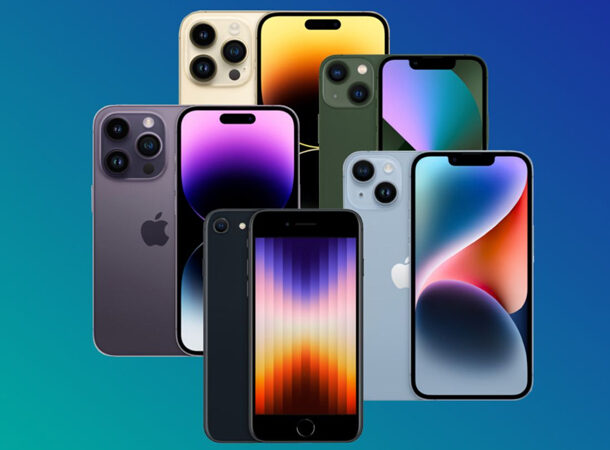 https://www.usatoday.com/story/tech/2019/09/12/iphone-11-people-say-older-iphones-have-already-started-acting-up/2298616001/
https://www.usatoday.com/story/tech/2019/09/12/iphone-11-people-say-older-iphones-have-already-started-acting-up/2298616001/ If you love Apple devices, you’ve probably lived through an event where your battery ultimately died and left for the great tech hereafter. If not the battery, you probably reached the stage where it became impossible to continue using an older device as the software wasn’t supported anymore. In that case, you’re probably one of the millions of people who firmly believe that Apple builds their iPhones to “die” after a certain amount of years so that the suckers (yes, that’s us) – are driven to buy the newest, latest, and greatest. In 2017, a rumored “Harvard study” even allegedly “proved” this theory. However, as much as we want to believe the conspiracy, it is simply not true. Older iPhones do get slower when new iOS upgrades are launched. However, this is due to the aging batteries’ inability to meet the demands.
So, outdated phones slow down, and yes, you will probably need to get a new one unless you’re going to go the Android route. But it is merely the nature of technology, not the result of some extravagant Apple conspiracy.
Google's Search Algorithm is Anti-Conservative
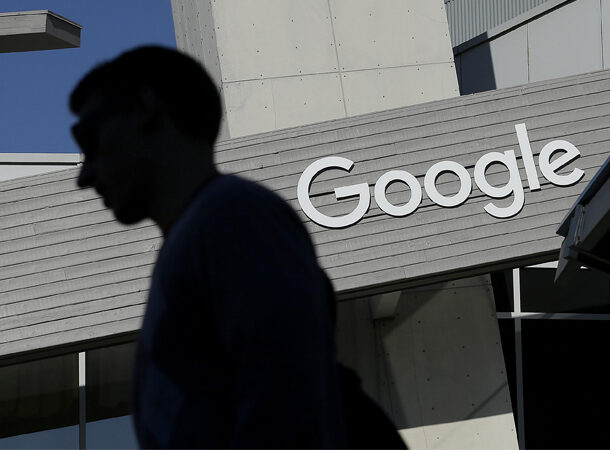 https://searchengineland.com/googles-project-owl-attack-fake-news-273700
https://searchengineland.com/googles-project-owl-attack-fake-news-273700 There are an infinite number of conspiracy theories out there about Google. One of the most widely believed is that Google suppresses websites featuring conservative opinions and news sources. The truth, however, is far less sinister than many would have you believe.
With misinformation spreading like wildfire on the internet, Google, Twitter, and Facebook have all taken on the task of stopping fake news. To get to that point, Google launched Project Owl in 2017, a search algorithm designed to combat the spread of misinformation from search results. The update targeted fake news and conspiracy theories by deleting search results, search suggestions, and multimedia promoting misinformation, hate, violence, harm, and explicit material.
Proctor & Gamble Is An Agent of Satan
 http://www.cbsnews.com/2100-500395_162-2587161.html
http://www.cbsnews.com/2100-500395_162-2587161.html In the 1980s, “Satanic Panic” was everywhere. You could hardly listen to a song or watch an animated series without hearing that it was satanic. Several companies came under scrutiny. One was Proctor and Gamble, whose brand suffered terrible losses when leaflets alleging that the company was an emissary of Satan circulated throughout the New York metropolitan region. The flyers stated, among other things, that the company’s logo depicted the devil and that the company’s profits were used to fund satan worship. Thousands of Americans joined the boycott against Proctor and Gamble. The backlash eventually prompted the corporation to launch a campaign to dispel the allegations.
According to Proctor & Gamble, the logo merely depicted a man looking out over thirteen stars, representing the first thirteen American colonies. After changing the logo, the company unsuccessfully sued Amway for disseminating the rumors but was successful in its subsequent lawsuits against Amway’s distributors.
Twitter Is Making It Impossible To Follow Donald Trump And Other Republicans
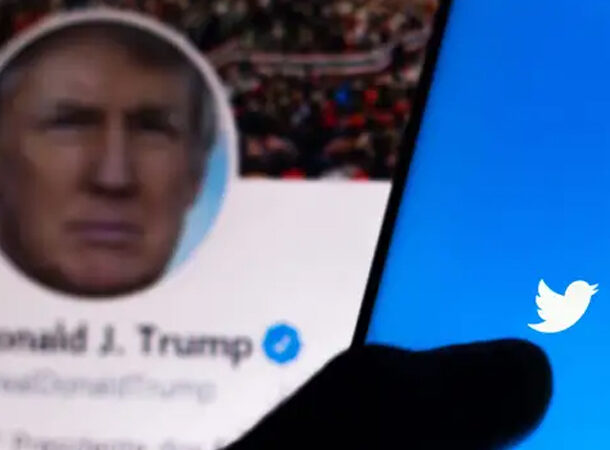 https://www.youtube.com/watch?v=mRQW675j6dM&feature=youtu.be
https://www.youtube.com/watch?v=mRQW675j6dM&feature=youtu.be Although this conspiracy theory has lost some of its luster, Donald Trump, the 45th President of the United States, often accused Pre-Elon-Musk Twitter of making it difficult for people to find and follow his account on the platform. In a 2019 interview with Tucker Carlson, he reiterated this claim. Republican legislators also accused Twitter of “shadow banning” their accounts by concealing their profiles from anyone other than their followers or blocking their handles from displaying in search results.
Twitter repeatedly refused to comment on Trump’s allegations. However, at the time of the allegations, it said on its website that its search algorithm was downplaying the user profiles of several politicians – Democrats and Republicans – because it detected that their accounts were behaving like spam accounts.
Pfizer Hid Data That Proved COVID-19 Vaccine Causes Birth Defects
 https://apnews.com/article/fact-checking-950821598874
https://apnews.com/article/fact-checking-950821598874 Did the hashtag #PfizerLiedAndPeopleDied make it to your phone? It gained traction after Janine Small, Pfizer’s president of international sales, verified that Pfizer wasn’t sure whether its COVID-19 vaccine stopped virus transmission when it first went on the market in December 2020.
However, Pfizer never claimed to have researched the issue before the vaccine’s release.
The FDA and Pfizer are also under scrutiny because another conspiracy theorist claims that Pfizer withheld evidence that COVID-19 vaccination causes birth abnormalities. The claims can be found on a website that has consistently misused and misunderstood clinical data to spread disinformation about the vaccine’s safety – causing indescribable harm. As Pfizer continues to stress, many large-scale studies support the recommendation of COVID-19 vaccination during pregnancy as it does not raise the risk of pregnancy complications.
Advertisers Are Secretly Controlling Your Phone
 https://www.vox.com/2017/4/12/15274312/burger-king-ad-triggers-google-home
https://www.vox.com/2017/4/12/15274312/burger-king-ad-triggers-google-home Remember that iconic Burger King commercial that aired during the Super Bowl a few years ago? It got everyone’s attention, but it also prompted Google Home devices to chat about Whopper burgers without anyone’s permission. It was, without a doubt, an excellent ad, but it revealed a flaw in the gadgets that live in the privacy of our homes. It was not an isolated incident; more recently, Amazon’s Echo devices have also been triggered by certain advertisements and TV shows.
Although the two companies have addressed this issue by teaching their respective devices to “ignore” specific commands, it opens the potential for future device manipulation by criminals or other parties. If that isn’t enough to worry about, in 2018, researchers used subliminal and encoded commands (by employing sound indistinguishable to human ears) to control devices, forcing phones to visit specific websites, dial cellphone numbers, send text messages, and even take pictures, confirming how wide this door can be opened if exploited by hackers or other parties.
The Big Pharma Conspiracies
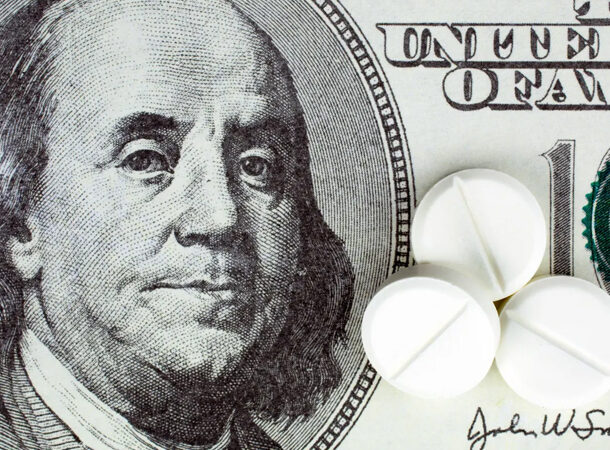 https://www.worldwidecancerresearch.org/news-opinion/2020/march/could-somebody-be-hiding-the-cure-for-cancer/
https://www.worldwidecancerresearch.org/news-opinion/2020/march/could-somebody-be-hiding-the-cure-for-cancer/ So many conspiracy theories surround Big Pharma – it could get its own list. A frequently heard conspiracy theory maintains that the drug industry has a cure for cancer but suppresses it so that it may continue to profit from the “ineffective” therapies currently provided to cancer patients. According to a 2005 poll, 27% of Americans actually believed this.
The other well-known conspiracy theory – that vaccines cause autism – can be traced back to a study in The Lancet in February 1998. Andrew Wakefield argued that there is a relationship between the MMR vaccine and autism. Wakefield’s medical license was revoked after the study was revealed to be fraudulent. The article was likewise pulled by The Lancet. Although several studies have debunked the relationship between autism and vaccinations, the conspiracy theory has persisted in different forms.
The Banks Are Controlled By The NWO/Illuminati
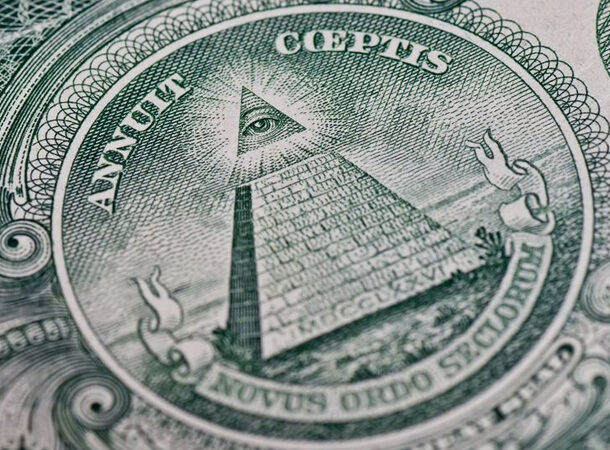 https://www.theguardian.com/commentisfree/2016/jul/19/revenge-against-elites-americas-wake-up
https://www.theguardian.com/commentisfree/2016/jul/19/revenge-against-elites-americas-wake-up A handful of conspiracy theories are floating around that claim the Bank of England, the Federal Reserve System, and the US central bank are privately owned and not government entities. Some believe the banks are controlled by the traditional suspects, the Rockefellers or the Rothschilds, while others believe the banks are governed by the New World Order or the Illuminati. Of course, their “control” impacts every financial facet of every country in the world. Inflation, repo rates, the Federal Reserve, and even the stock market. These beliefs are also related to the conspiracy theories surrounding the May 6 “flash crash,” when the US stock market dropped 600 points in five minutes before recovering most of its losses barely 20 minutes later. $1 trillion in market value was temporarily lost. We have yet to learn what the Illuminati did with the money in those twenty minutes.
The reasons why individuals believe in secret governing elites are founded on basic human nature. We do believe, however, that if the Illuminati is real, it must be the least secret club in the universe.



























